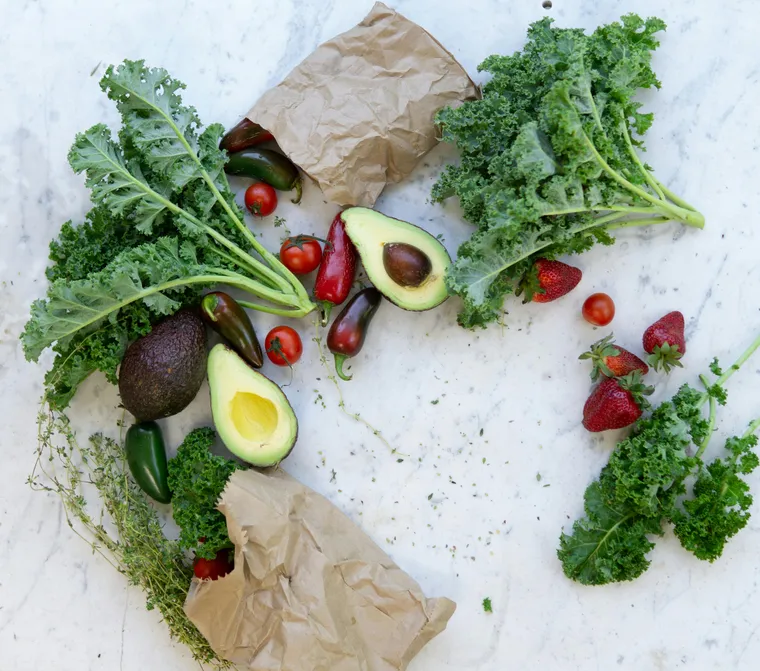Luckily, the foods you eat can make a big difference.
So what foods are good for liver repair, detox, and recovery? Here's what the research says — and what to eat if you’re trying to support your liver through a healthy, nutrient-rich diet.
1. Leafy Greens: Natural Detox Powerhouses
Spinach, kale, arugula, and other leafy greens are some of the top foods good for your liver detox. They're rich in antioxidants, chlorophyll, and fiber, which can help neutralize toxins and reduce inflammation.
A 2016 study in The Journal of Nutritional Biochemistry found that spinach extract significantly reduced fat buildup in the liver of mice with non-alcoholic fatty liver disease (NAFLD).
📖 Study Link
2. Fatty Fish: Anti-Inflammatory Omega-3s
Salmon, mackerel, and sardines are high in omega-3 fatty acids, which are known for their anti-inflammatory properties. Chronic liver conditions, including fatty liver, are often linked to inflammation — so reducing it is key.
A meta-analysis published in Clinical Nutrition in 2016 concluded that omega-3s can significantly improve liver fat, ALT levels, and triglycerides in NAFLD patients.
📖 Study Link
3. Turmeric: The Golden Liver Protector
Turmeric contains curcumin, a compound with powerful antioxidant and anti-inflammatory effects. It’s one of the most studied natural supplements for liver health.
A 2020 systematic review in Phytotherapy Research reported that curcumin supplementation improved liver enzyme levels and reduced fat accumulation in NAFLD patients.
📖 Study Link
4. Beets: Rich in Detoxifying Nutrients
Beets are high in betalains, compounds that support detoxification and reduce oxidative stress. They’re also a good source of fiber, folate, and iron.
Beet juice has been found to improve markers of oxidative stress in human studies, contributing to liver support.
📖 Review Article
5. Garlic: Small but Mighty
Garlic is loaded with sulfur compounds that activate liver detox enzymes. It also contains selenium, a mineral that helps prevent oxidative damage to liver cells.
A 2012 study in Nutrition Reviews found that garlic supplementation reduced body fat and improved liver enzyme markers.
📖 Study Link
6. Avocados: Good Fats for Liver Repair
Avocados are high in monounsaturated fats and glutathione — a potent antioxidant used by the liver during detoxification. They're one of the most beneficial foods good for liver recovery from alcohol or toxin overload.
The Journal of Agricultural and Food Chemistry noted that avocados may help protect against liver injury.
📖 Study Link
7. Coffee: Surprisingly Protective
Yes, your morning coffee might be doing more than just waking you up. Several studies have found that regular coffee consumption (2–3 cups per day) is linked to a lower risk of liver disease, liver cancer, and even cirrhosis.
A 2017 review in BMJ Open analyzed over 26 studies and found a strong association between coffee intake and reduced liver disease mortality.
📖 Review Link
8. Nuts and Seeds: Vitamin E Boosters
Almonds, walnuts, sunflower seeds, and flaxseeds are rich in vitamin E — a nutrient shown to improve liver health in people with NAFLD.
One 2015 study found that vitamin E significantly improved liver inflammation and fat accumulation in NAFLD patients.
📖 Study Link
9. Cruciferous Vegetables: Liver Enzyme Activators
Broccoli, Brussels sprouts, cauliflower, and cabbage contain glucosinolates, which support liver detoxification enzymes. A 2016 study found broccoli improved liver markers and decreased hepatic triglycerides in mice fed a high-fat diet.
📖 Study Link
10. Supplements to Consider
In addition to food, certain supplements are often recommended for liver support:
- Milk thistle (silymarin) – long used to treat liver conditions
- N-acetylcysteine (NAC) – boosts glutathione, the body’s master detox compound
- Vitamin E and C – powerful antioxidants
Consult your healthcare provider before starting any supplements, especially if you have liver disease.
Foods to Avoid (Just as Important)
While it’s essential to focus on what foods are good for the liver, it’s equally important to avoid those that can make things worse:
- Sugary drinks and desserts (linked to fatty liver)
- Fried foods and processed meats
- Excess alcohol
- High-fructose corn syrup (often in sodas and packaged snacks)
Sample Meal Good for the Liver
Breakfast: Oatmeal with flaxseeds, blueberries, and black coffee
Lunch: Kale and quinoa salad with avocado and lemon vinaigrette
Dinner: Grilled salmon with broccoli and roasted beets
Snack: A handful of almonds or sunflower seeds
Final Thoughts
Whether you're trying to reverse fatty liver, recover from alcohol damage, or simply keep your liver in top shape, your diet plays a critical role. Focus on whole foods rich in antioxidants, healthy fats, and anti-inflammatory nutrients — and stay consistent.
Taking care of your liver isn’t about quick cleanses or detox teas. It’s about fueling your body with the right foods every day.

